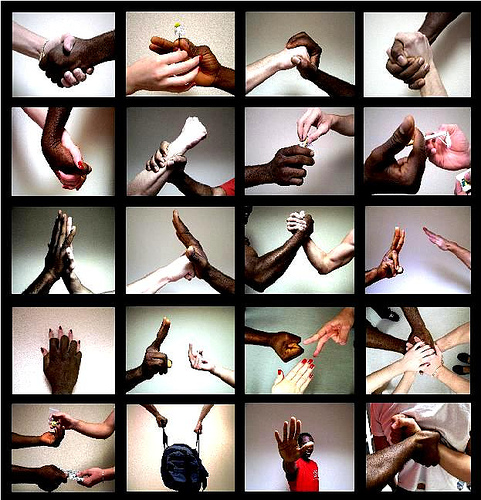Last week I discussed how the gathering of many nations at the World Cup points to a longing for unity. What inspires us when we witness people from various nations and ethnicities coming together should remind us of the promise God has made to bring people from every tribe and every nation together under the reign of his son, Jesus Christ. While we rightly embrace moments that display such diversity like the World Cup and many of us cling to the idea that God is forming a people made up of individuals from every nation, I question if we genuinely believe and long for there to be such diversity in heaven.
When we are asked to think about what heaven will be like as we join alongside people from every people group, its easy to think about what it will be like to live alongside sweet, loving people from Kenya and China and Brazil. But what will be your reaction when you find yourself singing alongside a former member of the Nazi regime? Would you embrace worshipping God for eternity next to someone from the Hutu tribe in Rwanda that committed genocide in the mid-90's? What about someone who at one point had ties to the Taliban?
Our view of a united humanity is too romanticized. It will not just include people from peaceful tribes. The people of God is not limited to the people groups that fought on our side for every war. This united group will not be missing representation from any people group. It is declared of Jesus, "You ransomed people for God from every tribe and language and people and nation and you have made them a kingdom and priests to our God, and they shall reign on earth," (Rev 5:10-11).
But this truth that our own enemies will join us should not surprise us. Throughout the ministry of Jesus and from the early days of the Christian church, one of the hallmark principles of the Christian faith has been the duty to love our enemies.
In his most famous message, Jesus told his disciples, "I say to you, love your enemies, and pray for those who persecute you, so that you may be sons of your Father who is in heaven," (Mt 5:44-45). Pointing out what should be the identifying characteristics of those who follow him, Jesus made it clear that we should love those we would normally hate. But why?
Jesus answers this question with the second phrase, "so that you may be sons of your Father who is in heaven." When we love our enemies, we look like and mirror God. While we were still enemies with God because of our sin, God sent his son to die for us (Rom 5:8-10). We follow in his footsteps when we love those who stand against us.
This principle of loving your enemies is displayed in countless other places in the New Testament. Jews and Samaritans, Jews and Greeks, Pharisees and tax collectors. Time and time again, Jesus and the apostles of the early church taught us to love our enemies.
Just as we are expected to love our enemies here on earth, we can expect to one day find ourselves united in heaven with those who were once standing on the opposite side of the battle lines. We are to love our enemies now in order to act as a preview for the day when people from every nation will live together as God's chosen people. We should be reminded of this each time we pray, "Your kingdom come, your will be done, on earth as it is in heaven," (Mt 6:10).
Sure, you want to go to heaven. But do you want to be there if your stuck next to your worst enemy? We must embrace our call to love our enemies and prepare for the day when God unites all things through his son. Until then, we continue to look forward to that day by following Jesus' last command. We must "make disciples of all nations," and to get ready to join hand in hand with the worst of our enemies.



Great observation and declaration of biblical truth! I love hearing your passion and growth in truth in this way! John Bryson often says when some of us get to Heaven we may be shocked to see who's there that we never expected and who didn't make it that we were sure would get in. What does it look like, on Earth, to truly love our enemies without overlooking or minimizing offenses or sin? Philippians 4:13 (all things through Christ who strengthens me)is my hope when others are tough to love.
ReplyDeleteJeremiah! I enjoyed this post. I'll be reading some of your other posts in the near future. Thanks for your words of encouragement...and thanks for reaching out! It HAS been too long...
ReplyDelete